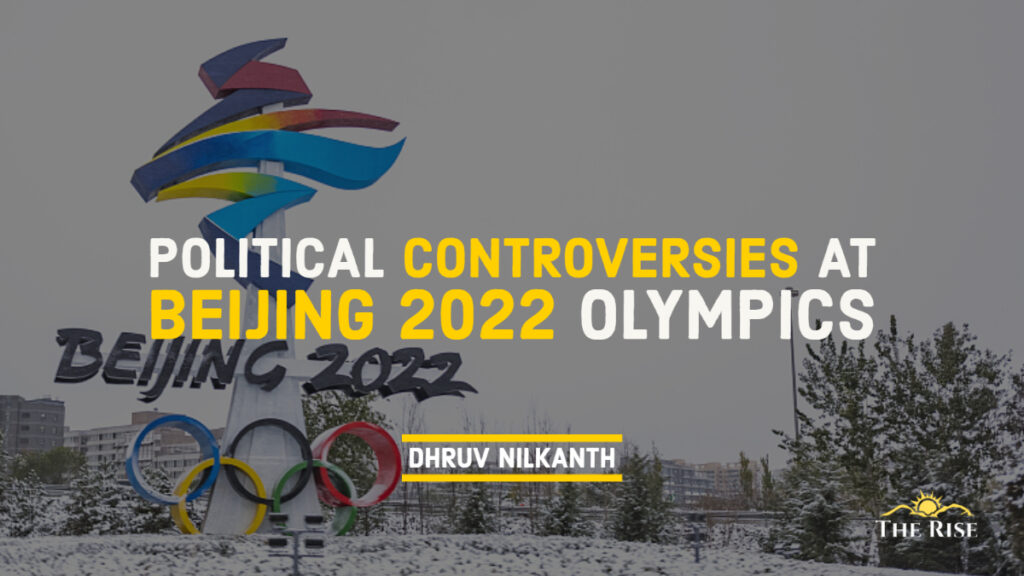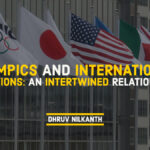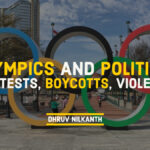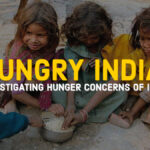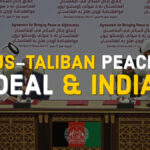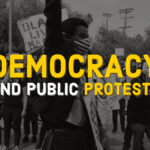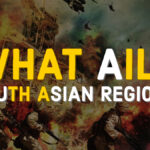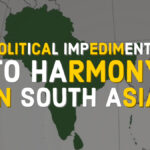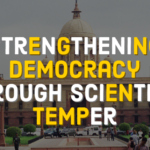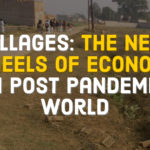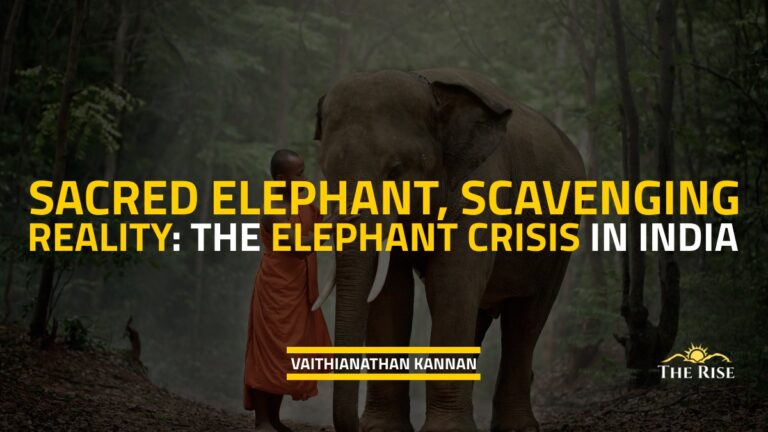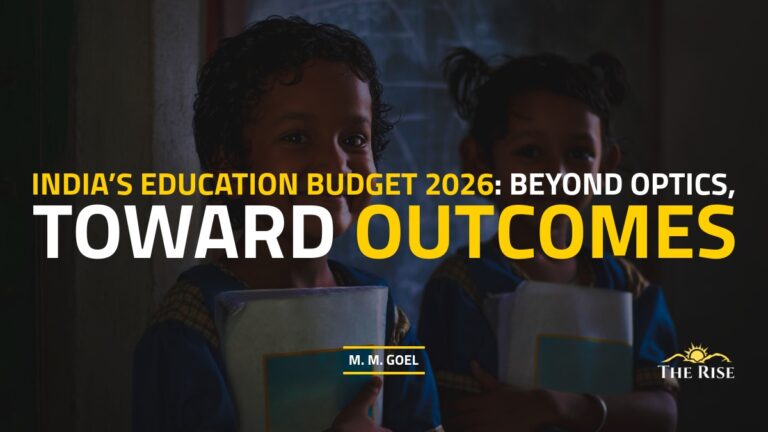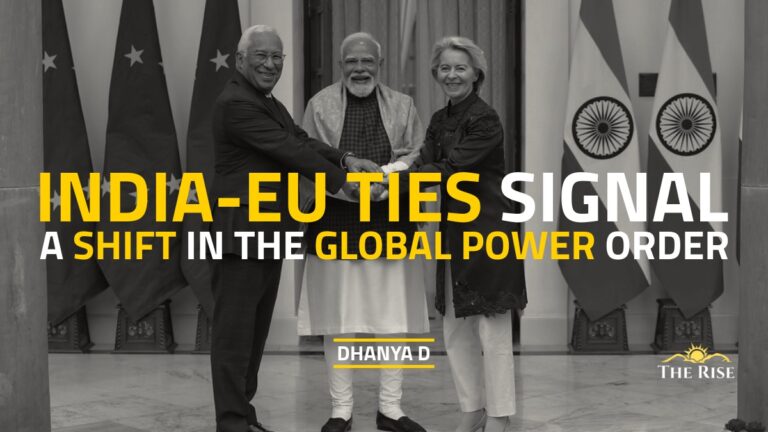The 2022 Winter Olympics concluded recently in Beijing. What made the 2022 Winter Games stand out was that the political aspect of the games was talked about exponentially more than the sporting aspects. The 2022 Beijing Olympics might have been the most tainted game in the history of the Winter edition. There was already a trend of increasing controversies and the political nature of the competition, but the latest set of events in China might have set the tone for years to come. Politicization, environmental problems, doping, decreasing viewership, fewer hosting candidates, increasing criticism, and many more problems cloud the future of the world’s oldest and grandest sporting phenomenon.
The 2022 Winter Olympics concluded recently in Beijing. Almost 3000 athletes from 91 different countries took part in over 109 events, spanning 7 sports and 15 disciplines. Norway continued its dominance at the winter games, topping the medal tally with 16 gold medals and 37 medals overall. The host nation, China, finished third on the table with nine gold medals. While the event featured exciting action with stories of success and upsets, it wasn’t the sporting aspect most people talked about at this 24th edition of the Winter Olympics. Even before the games began, Beijing 2022 had become a victim of international politics. The event was characterized by boycotts, security concerns, doping scandals, and numerous controversies throughout. In fact, politics dominated the sporting competition to such an extent that the average viewership of the games was the lowest of any Winter Olympics.
Opposition to Beijing 2022
Ever since Beijing won the hosting rights of the 2022 Winter Olympics, the questioning of this decision had begun. The International Olympic Committee maintains that it is an apolitical body and does not consider such factors in the selection of a host city or country. However, this stance faces severe criticism from human rights organisations, media outlets, and even a few governments from time to time. There were several issues that were flagged regarding China being the Olympic host. Even when Beijing hosted the summer edition in 2008, there were many concerns ranging from human rights violations, surveillance, environmental problems, etc. The same set of issues found prominence at the 2022 games in the Chinese capital as well. Calls for shifting the event out of China and boycotting the games emerged after reports of the Hong Kong protests of 2019 and the Chinese treatment of Uyghur Muslims surfaced. The alleged disappearance of Chinese tennis player Peng Shuai for comments against a senior Chinese politician added further to this movement against the 2022 Beijing Olympics.

Many countries, including the United States, were considering a diplomatic boycott of the 2022 Beijing Olympics by November 2021. Lithuania became the first country to confirm the same by releasing a statement in early December. This was soon followed by a decisive move when the United States declared a diplomatic boycott of the event in December 2021. This meant that while these countries would still participate and their athletes would compete at the games, no diplomats, politicians, or government officials would attend the event in any official capacity. The US was soon joined by Australia, Canada, and the United Kingdom, who announced their boycotts in the following days. Other boycotting nations included Kosovo, Estonia, Belgium, Denmark, and Taiwan. While Japan did not officially refer to it as a diplomatic boycott, senior officials from the Japanese government did not attend the Olympics.
Also Read: Olympics and International Relations: Uncovering an Intertwined Relationship
India’s announcement of a diplomatic boycott of the event came just a few days before the games got underway. This action was provoked by the inclusion of a regimental leader of the Chinese People’s Liberation Army as a torchbearer at the opening ceremony. Identified as Qi Fabao, the soldier was involved in the 2020 Galwan Valley clash between China and India. Apart from the boycotting nations, there were many other countries that, although were not staging a diplomatic boycott, decided not to send any diplomats to the Beijing 2022 Winter Games.
Response to the Boycott
The IOC released a statement in response to the US declaration of a diplomatic boycott by taking a neutral stand. It said that the decision to send diplomats or officials is the political decision of every Government and that the IOC would respect any such decision in the spirit of political neutrality. The body also showed appreciation towards the boycotting countries’ decision to still let athletes compete in the games uninterrupted. However, at the same time, the IOC reaffirmed its commitment towards an apolitical approach to global cooperation in sports to promote peace.
In contrast to the IOC’s reaction, the Chinese response was strong and condemned the boycott. Many spokespersons belonging to the Chinese government, the foreign ministry, the embassy in Washington, media outlets, etc., reacted critically to the US decision to boycott the Beijing event. Firstly, the diplomatic boycott was portrayed as insignificant and incapable of making any impact on the proceedings of the event. Secondly, the Chinese respondents termed the allegations of the protesting countries as baseless. Furthermore, China accused the boycotting nations of misusing the Olympic platform by politicizing the event. China also affirmed that the diplomatic boycott would have absolutely no effect on the proceedings of the event. Lastly, the Chinese also warned the boycotting nations that they would have to face severe consequences for their actions. While there has been no official statement or action in relation to the consequences, some of the possible outcomes could be Chinese economic and strategic moves such as cutting off market access, etc.
Other Concerns
Apart from human rights violations, there were also other national and international concerns regarding the 2022 Winter Olympics which turned into controversies. These problems ranged from environmental issues to security breaches. One of the most pressing concerns was based on the privacy of the athletes. Due to an insufficient stock of snow in the capital city, large volumes of snow had to be artificially created for the event. Additionally, since most of the venues were close to natural reserve areas, this would have a detrimental ecological impact.
The health of the athletes was another crucial matter. Due to the COVID-19 pandemic, the risk associated with athletes’ health was already high. For this reason, it was mandatory for all athletes to install a mobile application known as “My 2022”. However, this further created another problem. This app, made to monitor and regulate data related to the coronavirus, had several security gaps. A Canadian interdisciplinary laboratory, Citizen Lab, warned against this. Not only did the app collect large amounts of personal health data from the athletes, but it was also vulnerable to security breaches. Furthermore, there was also speculation about China aiming to conduct espionage on the athletes. The combination of these two factors led to a few countries advising their athletes to either not carry any electronic devices to China or to use only burner phones.
Controversies During the Games
The political frenzy around Beijing 2022 continued throughout the actual duration of the event as well. Apart from the existing drama, there were many incidents that took place during the games that led to a brewing controversy. During the opening ceremony, Dinigeer Yilamujiang, a 20-year-old Chinese cross-country skier, brought the Olympic torch into the stadium along with another athlete. The choice of Yilamujiang, who belongs to the Uyghur community, as a torchbearer was criticized as being politically motivated by Uyghur support groups, including the World Uyghur Congress. According to them, China was trying to hide its treatment of the Uyghur Muslims from the Xinjiang region of the country and portray a different narrative through this symbolic act.

Another instance was when a Dutch journalist was manhandled off-camera while reporting from the Olympics. Sjoerd den Daas was covering the opening ceremony in real-time from outside the stadium when this incident took place. While the incident might not be too serious when seen in a vacuum, it raises concerns about the treatment of journalists in China.
The biggest controversy of the Olympics, however, was due to a common factor known to taint several sporting events from time to time – doping. Russia was again at the forefront of this drug controversy. After already having been found guilty of a systemic doping program, the country’s name and the flag were banned from the 2022 Winter Olympics. All athletes from Russia were competing under the ROC (Russian Olympic Committee) banner. On February 7th, the ROC athletes won gold in the figure skating team event. However, the medal ceremony for the event did not take place on the schedule for some reason. It was revealed that one of the ROC skaters, 15-year-old Kamila Valieva, had tested positive for trimetazidine, a banned substance. This news came as a shock and led to a huge controversy surrounding the revelation. Valieva was consequently banned by the Russian Anti-Doping Agency (RUSADA). However, she was later reinstated and allowed to participate in the women’s individual event almost two weeks later. However, after having posted the best score in the short programme on February 6, Valieva failed to recreate her performance and faltered multiple times in this instance. The IOC and the associated drug testing agencies, including the World Anti-Doping Agency (WADA), received severe flak for this. Many blamed the pressure and stress that had emerged from the controversy as a reason for the young Russian’s failure.

However, the doping controversy soon took a political turn when certain facts came out about the investigation. It was revealed that Valieva had taken the test in December 2021, but the report wasn’t released until February 7, after she had led the ROC team to Olympic gold. While the athlete’s defenders claimed that she had consumed the substance unintentionally, there were strong arguments against this. Apart from trimetazidine, Valieva had also taken two other legal substances, which are for heart function improvement but could also have a positive effect on her performance. Travis Tygart, the head of the US Anti-Doping Agency (USADA), used this fact to emphasize that this was part of a more serious doping plan. Similarly, there was also an argument that the entire controversy was an outcome of a failed cover-up attempt, which was only exposed because of a whistleblower.
A Disturbing Trend of Politics at the Olympics
Politics has always been present at the Olympics, and the complete separation of the two is hardly possible. However, the 2022 Beijing Olympics might have been the most tainted game in the history of the Winter edition. There was already a trend of increasing controversies and the political nature of the competition, but the latest set of events in China might have set the tone for years to come. What made the 2022 Winter Games stand out was that the political aspect of the games was talked about exponentially more than the sporting aspects. The main focus of a sporting event was a non-sporting topic, which goes against the very spirit of the Olympics.
What made the 2022 Winter Games stand out was that the political aspect of the games was talked about exponentially more than the sporting aspects.
From here onwards, there is a high possibility that every Olympics will be surrounded by more such political controversies. Last year, the IOC president, Thomas Bach, announced that the Olympic motto would be changed to “Faster, Higher, Stronger – Together” before the 2020 Tokyo Olympics. However, the following events before and during the 2022 Beijing Olympics have made it clear that the ‘together’ element is clearly missing from the Olympic games. Unfortunately, while the Olympics remain the gold standard for athletic excellence in the world, the on-field battles are being overshadowed by geopolitical rivalries.
Future Challenges for the IOC
Politicization, environmental problems, doping, decreasing viewership, fewer hosting candidates, increasing criticism, and many more problems cloud the future of the world’s oldest and grandest sporting phenomenon. Given the circumstances, the IOC has a lot of work to do if it wants to keep the glory of the event alive and continue with its aim of bringing peace through sports and cooperation. The Games have become increasingly political in nature. The IOC has to be apolitical as well as not harm the athletes in any way. Therefore, it has to walk a tightrope in order to prevent countries’ politicization of the games while trying to avoid penalizing the athletes from those countries. The most logical way to accomplish this is to prohibit the name and flag of the protesting or boycotting country from appearing at the event while allowing the athletes to participate freely. However, being an apolitical body, the IOC also has to show restraint in taking such actions.
Unfortunately, while the Olympics remain the gold standard for athletic excellence in the world, the on-field battles are being overshadowed by geopolitical rivalries.
Whether the IOC does or does not do something against this, they will be criticized either way. Therefore, in the future, the Olympic body has to tread carefully by balancing between preventing such incidences while also not cracking down on freedom of expression. In the case of Beijing 2022, while the boycotting countries were violating the Olympic spirit, the human rights record of the hosts, China, was also at odds with the objective of peace. Thus, while it is true that politicization of the Olympics goes against the very spirit of the competition, it is also true that the IOC’s ignorance of a country’s political actions under the excuse of being apolitical is proving counterproductive to achieving that goal.
The Olympics and the Way Forward
In 2017, the IOC took a progressive step in the direction of accountability by referring to the United Nations Guiding Principles on Business and Human Rights (UNGP) in the revised Host City Contract. This will require future hosts to maintain certain human rights and anti-corruption standards. Another challenge for the Olympics is to become sustainable, both environmentally and financially. While the 2022 Winter Games claim to be carbon net-zero, the ecological effects of hosting an Olympics are too complex to assess solely on the basis of one indicator. This holds true, especially in the case of the Winter Olympics, which require large quantities of land and snow. This negatively impacts forest reserves and water supplies and is becoming even more challenging due to global warming. Similarly, the low viewership numbers and a decrease in countries wanting to host the event have led to people questioning the economic viability of the tournament.
Politicization, environmental problems, doping, decreasing viewership, fewer hosting candidates, increasing criticism, and many more problems cloud the future of the world’s oldest and grandest sporting phenomenon.
Resilience and a New Direction
This is not the first time that the Olympic Games have faced such challenges. During the last 126 years, the competition has seen many ups and downs going through wars, economic crises, pandemics, and much more. Internal policy changes and the potential introduction of e-sports are just a few of the steps that will help the Olympics adapt to a changing world. The Olympics have been resilient through all this and will definitely emerge past the current hurdles. One thing is for sure though, that there is a massive change impending. However, the decisions that the IOC and all concerned parties take in the near future will determine the direction in which the Olympics will head in the years to come.
You May Like: Article Series on the Olympics and International Politics
References
- IOC. 2022. Beijing 2022 Facts and Figures. Olympics.com. https://olympics.com/ioc/beijing-2022-facts-and-figures.
- ANI News. 2021. Lithuania confirms diplomatic boycott of Beijing 2022 Winter Olympics. https://www.aninews.in/news/world/asia/lithuania-confirms-diplomatic-boycott-of-beijing-2022-winter-olympics20211203200952.
- Victor Mather. 2022. The Diplomatic Boycott of the Beijing Winter Olympics, Explained. The New York Times. https://www.nytimes.com/article/diplomatic-boycott-olympics.html.
- Suhasini Haidar. 2022. Indian diplomats to boycott Beijing Winter Olympics. The Hindu. https://www.thehindu.com/news/national/india-to-diplomatically-boycott-winter-olympics-over-chinas-decision-to-field-galwan-soldier-as-torchbearer/article38370876.ece.
- BBC. 2021. China warns nations will ‘pay price’ for Olympic boycott. https://www.bbc.com/news/world-asia-china-59592347.
- Tom Cheshire. 2022. Beijing 2022: Lack of natural snow is ‘disturbing’ but Games are being ‘delivered with sustainability’, says IOC. Sky News. https://news.sky.com/story/beijing-2022-lack-of-natural-snow-is-disturbing-but-games-are-being-delivered-with-sustainability-says-ioc-12539111#:~:text=Beijing%20is%20an%20arid%20region,water%20to%20create%20the%20snow.
- Jeffrey Knockel. 2022. Cross-Country Exposure Analysis of the MY2022 Olympics App. The Citizen Lab. https://citizenlab.ca/2022/01/cross-country-exposure-analysis-my2022-olympics-app/#:~:text=According%20to%20this%20policy%2C%20apps,and%20travel%20and%20medical%20histories.
- Amy Qin. 2022. Bearing an Olympic Torch, and a Politically Loaded Message. The New York Times. https://www.nytimes.com/2022/02/08/sports/olympics/china-uyghur-olympics.html.
- Karolos Grohmann. 2022. Dutch reporter on-air incident was isolated case, says IOC. Reuters. https://www.reuters.com/lifestyle/sports/dutch-reporter-on-air-incident-was-isolated-case-says-ioc-2022-02-05/.
- Express News Service. 2022. The Indian Express. Explained: How figure skater Valieva was banned, then reinstated at Olympics despite doping charge. https://indianexpress.com/article/explained/explained-figure-skater-valieva-ban-winter-olympics-7777148/.
- Human Rights Watch. 2017. Olympics: Host City Contract Requires Human Rights New Provisions Could Prevent Abuses That Marred Rio, Sochi, Beijing Games. https://www.hrw.org/news/2017/02/28/olympics-host-city-contract-requires-human-rights.
- Candice Choi and Kelvin Chan. 2022. EXPLAINER: Olympics show complexity of sustainability claims. Associated Press. https://apnews.com/article/winter-olympics-sustainability-claims-b8ebc9d946ad080cac7508f95abb8978.

